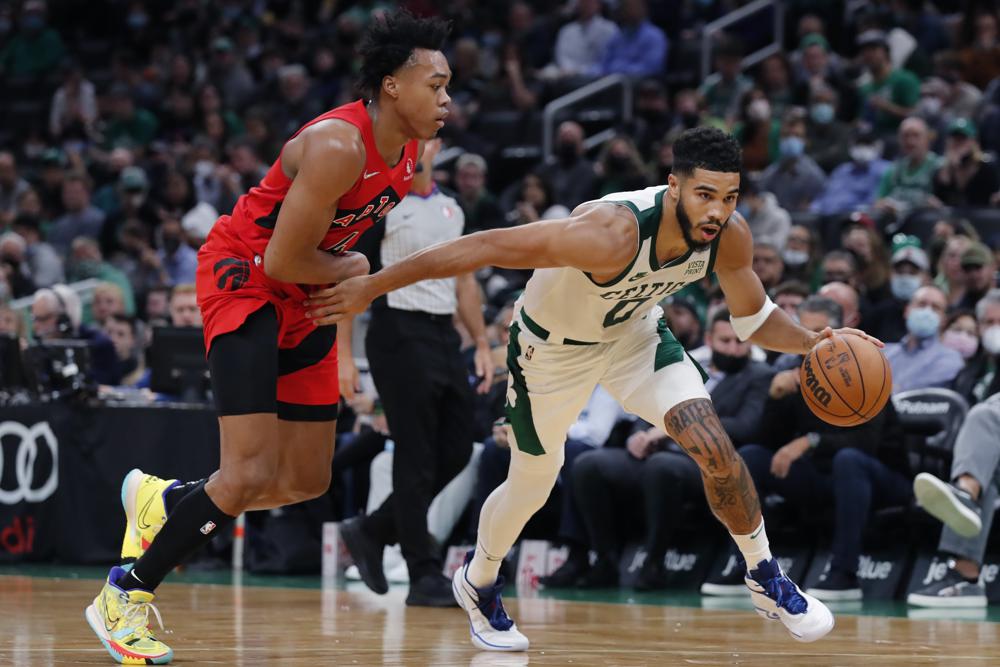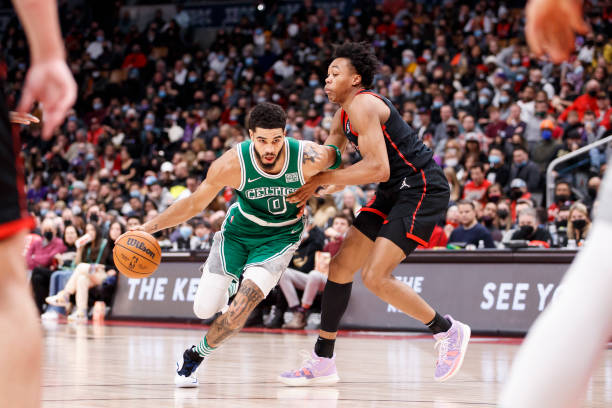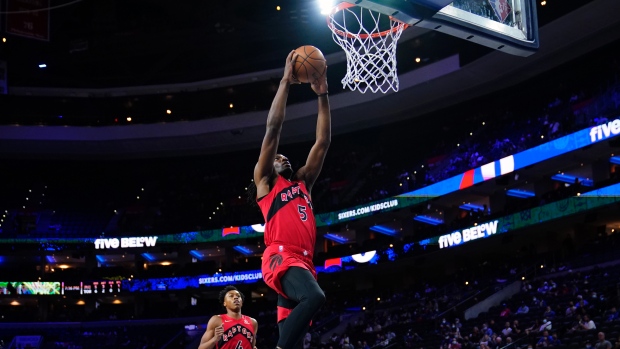Quick Reaction | Rap Up | React Pod
Maslow’s hierarchy of needs may look like a pyramid scheme, but it isn’t one. In order for a secondary important need to be met, the the first must be addressed. Or put in the words of my wife, who is a teacher, a child can’t learn optimally if he’s not fed or feeling safe. Priorities aren’t theoretical, but instead are real, tangible requirements that stack one on top of the other.
This season for the Toronto Raptors has palpable hierarchies. Winning matters, yes, but the team can’t win without other needs being met. Their stars need to add to their games. For that to happen, they need to experiment. For that to happen, they need to play with aggression, learning by experience. For that to happen, the opportunity has to be available for aggression. For that to happen (I’m getting to the end of the road here soon), the floor has to be open.
Wins may be important, but they’re not the critical requirement for the Raptors at the moment. Not to say the Raptors are tanking — they’re not, and they shouldn’t — but some things matter more this season than wins. First and foremost is the development of the stars.
Fred VanVleet is becoming one of the best players in the NBA, full stop. He’s become absolutely deadly on the ball, creating for himself or his teammates out of the pick and roll, or dancing in isolation and jetting to the rim. He’s up to almost 60 percent at the rim — a fine mark for a point guard, especially one of his size. He’s being choosier for his looks there, not forcing anything, and consequently being blocked far less. Off the ball, he moonwalks into relocation triples with ease, channeling his inner Steph Curry, as he did multiple times against the Boston Celtics. He sets great screens. He never stops moving. Of course, he’s one of the best defenders in the game. VanVleet was always supposed to be a ceiling raiser because of his shooting and knack for the big moments, but he’s become even more important as a source of stability and solidity, raising the team’s floor. Toronto is frankly horrible without VanVleet in the game. He continues improving with each game.
Pascal Siakam had a middling outing against the Celtics, especially after he started the game hitting everything. Even though he shot inefficiently, especially from deep, he passed well and ran in transition. He attacked the rim with aplomb (and if he was given even a few more free throws, which he deserved, we’d probably be talking about this as a great game from him.) His defense is starting to become much more dependable. We have known for seasons how incredible he is on that end, so a small slip when returning from surgery is nothing to worry about. And his offense has been phenomenal this season, by and large, as he improves at lifting his teammates around him. Toronto, as in the case of VanVleet, was horrible without Siakam in the game against Boston.
But most importantly — and I’m burying the lede here — Scottie Barnes is learning to fly before our eyes. He attempted nine triples against the Celtics (a career high) and made four (a career high). Even more impressive, it seemed as though he was destined for a poor showing after he picked up two early turnovers, and Nurse yanked him from the floor post haste. When he returned, he seemed tentative, passing up open jumpers. Then he hit a triple. Another. He even tossed in a heat-check jumper when everything else broke down on the offensive end; his jumper turned into not just a release valve, but in fact a proactive weapon.
Barnes was terrific in the post, throwing in weirdo jump-and-spin-in-midair finishes, hooks, push shots, everything. He looks like he’s the biggest guy on the floor sometimes when he goes up to finish. He attacked the offensive glass. Barnes continues to kind of do everything well on the offensive end. And now he’s hitting jumpers. There’s a moment in Alice Hoffman’s Doverkeepers that stands out to me. The Jews of Masada thought their mountain impregnable, even after they saw the legionaries of Rome arrive on site. For the first few days, the Roman soldiers did nothing, milling around the area. Then they started building. And within a short period of time, the built a mountain of their own, directly beside Masada, with a smooth comfortable slope on the far side of the stronghold up which they could walk without fear of defensive arrows.
To capture a mountain, Rome built a mountain of its own. That’s what watching Barnes is like. He sees impossible problems and finds impossible answers, almost immediately. How good could he become? It’s hard to say. He has so much to improve in so many areas — feel, ball-handling, manipulation, more. He’s not ready yet to be an offensive initiator against opposing starters. But he’s already this good without having so many elements. He could be a Hall of Famer if he keeps growing as fast as the Roman mountain. And now he’s hitting triples, which matters so much for the success of Siakam and others; the hierarchy builds atop itself, and Barnes’ success is a foundational piece to Toronto’s success everywhere else.
That matters far, far more for Toronto than the results of a November game against the Celtics. The future is bright. To Masai Ujiri and the Raptors, winning in the future is the most basic in the hierarchy of needs. All else is subordinated to that, will happen, or not, in service of that. And Barnes took monstrous steps forward against Boston. Maslow would be proud of his service to Toronto’s bottom line.



